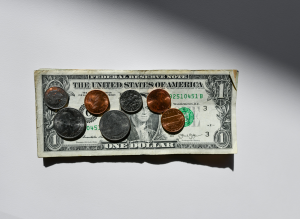Nobody likes to think about the possibility of a recession happening, but it is inevitable. It does not matter if the economy looks good right now because a recession will occur at some point. The question is, are you ready for it?
Most people have not taken the necessary steps to protect themselves financially against a future recession. All they do is work jobs, pay bills, and rely on their elected leaders to protect them from financial disaster. Sadly, no elected leader can stop a recession if there is too much economic uncertainty.
Recessions can occur for any of the following reasons:
- Low consumer confidence
- High unemployment rate
- An epidemic or pandemic (e.g., COVID-19)
- Artificially inflation of real estate and stock prices
- Too many unsustainable loans issued
- Geopolitical conflicts or natural disasters disrupting the supply chain
Unfortunately, you do not have the power to stop any of these economic crises from happening. All you can do is financially future-proof yourself against a recession before it occurs. Then, you and your family can survive until the recession is over.
Here are the top six ways to financially prepare for a recession so that it doesn’t impact your lifestyle.
1. Create an Emergency Fund
One of the most important things you must do to prepare for a recession is create an emergency fund. It is a fund that should pay for your living expenses for at least 3 to 6 months until the worst of the recession is over. You cannot use this money for anything else other than for emergencies.
Just open up a high-yield savings account solely for the emergency fund. Then, add a percentage of each paycheck to the emergency fund to slowly grow it. Keep adding to the fund until it has accumulated enough savings to cover your living expenses for 3 to 6 months.
2. Pay Off Your Debt
Too much debt is bad enough during regular times, but it’ll be even worse if there’s a recession. The last thing you’ll want to worry about is paying off your existing debt if you’ve lost a job and need to pay your bills. It is better to pay your debt off now before a recession strikes.
The first debt you should pay down is your credit card debt because it charges the highest interest rates. You can keep your credit cards but only use them to pay for essential items during a recession or other emergencies. Never use your credit cards to pay for non-essential items, or you’ll never get out of debt.
The objective is to become debt-free before a recession. It’ll give you one less thing to worry about as you deal with the aftermath of the recession.
3. Create Multiple Income Streams
Too many people live paycheck-to-paycheck. A recession will severely impact these people if they lose their jobs because they will no longer have their single source of income. The worst part is that it will be difficult to find another job while the recession progresses.
Therefore, you must financially secure yourself before a recession by creating multiple income streams. They will keep you afloat if you lose your job during a recession because you can rely on other income streams to pay your bills.
Here are some examples of income streams that you could create for supplemental income:
- Writing and publishing eBooks
- Selling digital services (e.g., freelance writing)
- Start an e-commerce store
- Uber driving
- Selling digital courses
Consider your specific skills and experience and how to use them to create more income streams.
4. Eliminate Unnecessary Expenses
It is easy to accumulate unnecessary expenses when you make purchases you want rather than need. Some of the most common examples of discretionary spending include streaming services, restaurants, and movies.
Start budgeting your expenses better by eliminating all unnecessary costs. Only pay for the essential products and services needed for your survival. Add the extra money saved to your emergency fund or invest it in stocks and bonds to build wealth.
You will be ready to survive a recession if you have eliminated unnecessary expenses and taken steps to build wealth with the money saved.
5. Learn New Skills
Diversifying your skillset could be helpful when job hunting during a recession. You could enroll in online courses or certification programs to learn new skills that will help you get a job if you lose your current one in a recession.
Here are some ideas for the education you could pursue:
- Real estate sales
- Internet Marketing
- Computer programing
- Learn a trade (e.g., A/C repair, locksmithing)
Don’t wait until a recession to learn new skills and develop your career because it will be too late. Now is the time to learn those skills and earn career certifications to give you more job options when times get tough.
6. Build a Network of Professional Connections
Do you have a LinkedIn profile yet? LinkedIn is a social media platform designed to connect career professionals. Set up your LinkedIn profile, publish your resume, and connect with other professionals in your field or related fields.
You might need to depend on these professional connections when job hunting during a recession. Perhaps one of those connections has a job opening or knows someone else who does. They could hook you up with employers looking to hire someone with your skills and qualifications.
Conclusion
The world is in crisis. Almost every reputable economist is predicting that a potential recession will happen within the next year or two.
Preparing your finances before the recession strikes is wise, or you’ll be in a precarious situation. The last thing you’ll want to happen is to lose your job with no money saved and no alternative income source. You could very well end up homeless under these conditions.
Financially future-proofing yourself will ensure you have enough savings and income to shield yourself from the adverse effects of a recession. If you implement the recommendations outlined above, you will remain financially stable no matter what happens with the economy.






